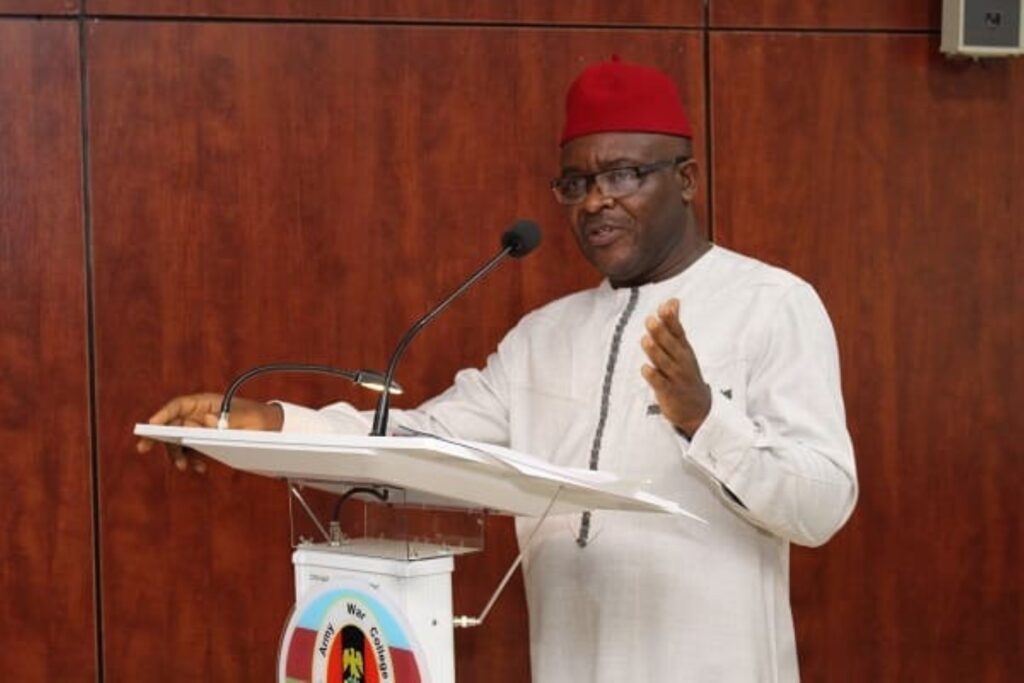By Jude Johnson
The paradox of exclusion
Nigeria’s political landscape has often defied democratic principles, favouring patronage, rent-seeking, and sycophancy over inclusive governance. As the nation eagerly anticipates President Bola Ahmed Tinubu’s tenure, it raises the question of whether he will prioritise the reintegration of the South East into mainstream politics and bridge the growing divide among various interest groups and ethno-religious blocs. Despite the ruling party’s history of allocating political offices based on identity politics, it remains uncertain if Tinubu’s presidency will bring a positive change and improve the fortunes of the South East.
It could be recalled that the All-Progressives Congress (APC) has presented a paradox for the South East region since coming into power. The ruling party has perpetuated a flawed system of “rewarding” regions based on popularity or percentage votes gained, further alienating the electorate. This approach contradicts the core principles of democracy and good governance, which emphasise inclusivity. In an ideal democracy, efforts should be made to engage and win over voters in regions where the party performed poorly. Unfortunately, this has not been the case in APC’s Nigeria.
A trip down memory lane will reveal that the exclusionary pattern observed in recent years has its roots in the policies adopted by former President Muhammadu Buhari’s administration. Buhari famously introduced the notion of a “97 versus 5 percent” vote reward, openly acknowledging the administration’s bias in favour of regions that supported him. This biased approach was evident in the government’s appointments, particularly to the detriment of the South East and South-South regions, where Buhari received the least votes. Despite occasional tokenistic appointments for the South-South, the South East was consistently marginalised and overlooked.
Ineffective strategies and growing discontent
While some attempts were made by the Buhari administration and APC to engage the South East, their strategies proved counterproductive. Rather than using a carrot-and-stick approach to win over the hearts and minds of the people, the administration’s actions further alienated the populace. This inadvertently fueled sympathy for self-determination groups and deepened the divide between the disillusioned masses yearning for inclusive governance and the political elites who aligned themselves with APC without reaping the benefits.
Consequently, the lack of representation and recognition at the centre has hindered the South East’s leaders from inspiring the region’s populace. The absence of tangible rewards for their loyalty has reinforced the perception that the ruling party has no regard for the region. Consequently, these leaders are seen as beggarly and outcasts, lacking the legitimacy needed to effectively represent their constituents. However, a change of course by the incumbent administration could alter this dynamic.
Empowering Tinubu’s allies in the South East
President Tinubu has the opportunity to achieve two objectives simultaneously by empowering credible and principled individuals from the South East. The question then becomes, who are Tinubu’s allies in the region? Several names emerge, including Senator Orji Uzor Kalu, ex-Governors Rochas Okorocha and Dave Umahi, Governor Hope Uzodimma, Sen. Ken Nnamani, Dr. Ogbonnaya Onu, Gen. Azubuike Ihejirika, and Joe Igbokwe, amongst others.
While some of these figures in the South East have legitimacy issues, others stand out for their principled credentials. Tinubu should consider individuals like Nnamani, Ihejirika, and Onu, who have earned respect and recognition within the region. Ihejirika, in particular, brings immense value as a national leader of Igbo extraction who has consistently demonstrated competence and integrity throughout his career. As one of the pioneer service chiefs in Nigeria’s counter-terrorism and counter-insurgency operations, Ihejirika has proven his dedication to national security. Additionally, his tenure as the General Officer Commanding (GOC) 81 Division in Lagos coincided with Tinubu’s governorship, showcasing their potential synergy and shared vision.

Ihejirika’s history-making achievements, such as being the first Army Chief of Igbo extraction since the Civil War, highlight his ability to break barriers and unite diverse groups. Under President Tinubu, he could play a pivotal role in restoring peace, stability, and national security. Ihejirika’s previous tenure as Chief of Army Staff witnessed groundbreaking reforms that continue to benefit the Nigerian Armed Forces to this day. His extensive experience and leadership qualities make him an invaluable asset in steering the country toward sustainable security, peace, and development.
Beyond Ihejirika, Tinubu should actively seek out other talented individuals from the South East who possess the zeal and capacity to contribute to the nation’s progress. By empowering these bright minds, Tinubu can demonstrate his commitment to inclusivity and effective governance. These individuals should be chosen based on their competence, credibility, and alignment with the principles of justice, fairness, and equity.
Moving forward…
The South East region of Nigeria has long endured a sense of exclusion and marginalisation within the political landscape. As President Tinubu assumes office, there is an opportunity to change this narrative. By adopting a strategy that prioritises inclusive governance and by empowering principled leaders from the South East, Tinubu can bridge the gulf between the region and the centre. Leaders like Ihejirika, with their sterling track records and unwavering commitment to national security, can play a pivotal role in driving positive change.
Tinubu must select allies in the South East who command respect and legitimacy among the populace. By doing so, he can demonstrate his dedication to fairness and unity, restoring confidence in the political process and fostering a sense of belonging among the South East electorate. This approach will not only benefit the South East but also contribute to the overall development and progress of Nigeria as a whole.
The time for a fair deal for the South East under Tinubu’s presidency is now. By embracing inclusive governance, empowering capable leaders, and prioritizing the interests of all Nigerians, Tinubu can steer the country toward a brighter and more prosperous future, where every region feels valued and represented. Only then can we truly achieve the ideals of democracy, justice, and unity that Nigeria aspires to uphold?
Johnson, a public affairs analyst writes from Abuja

